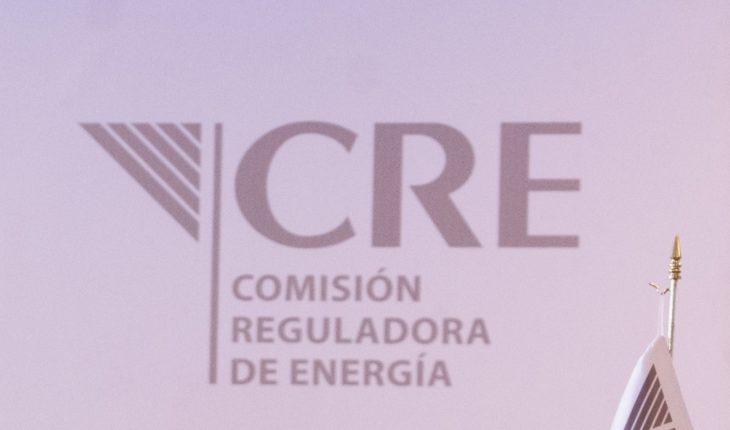The Energy Secretariat requested to cancel the publication of three energy regulatory agreements (CRE), despite the use of this being a decentralized body with technical, operational, management and decision-making autonomy.
On 29 April, the head of the Legal Affairs Unit of the Sener, Alejandro Morales Becerra, asked the Deputy Director General of the Official Journal of the Federation (DOF), Alejandro López González, not to publish three agreements taken by the commissioners of the CRE.
In all three cases, the request for non-publication was due to the non-agreement of the Energy Secretariat with CRE resolutions.
These are agreements A/001/2019, A/002/2019 and A/005/2019, approved in January this year.
The first agreement, A/001/2019, concerns the diagnosis of the measurement system as set out in the Manual for the Interconnection of Power Plants and Connection of Charging Centers.
“The CRE is exceeding the scope of its powers by issuing this agreement by restricting the powers of control with respect to the Electric Power Transmission and Distribution Public Service,” Sener says to request Segob not to published in the Official Journal of the Federation.
In agreement A/002/2019, THE CRE amended administrative provisions in the National Transmission Network and General Electricity Distribution Networks, as well as the provision of electricity supply. This, to promote the generation of electricity by private bodies.
In the petition, Sener notes that the agreement was unaware of the arguments put forward by the Federal Electricity Commission (CFE) to the National Regulatory Improvement Commission regarding the implications of the measure.
In agreement A/005/2019, the Regulatory Commission established the products and services that the electricity industry can offer.
“The CRE is exceeding the scope of its powers by intending to perform functions that correspond exclusively to the Legislative Power,” the Sener said.
The three agreements Sener vetoed concerned electricity generation and storage and monitoring.
Victor Ramírez, an energy expert, considered that this attempt to diminish CRE’s powers seeks to strengthen the Federal Electricity Commission as a state monopoly and limit the opening of the energy market.
“They do seek to limit to some extent what private people do, but what is more important is to avoid costs or make things easier for the network operator, which is CFE,” he said.
The Law on Coordinated Regulators on Energy Matters states that the CRE’s attribution is to request the Official Journal of the Federation to publish the general provisions it issues, and other resolutions and acts it deems to be required to publish the general provisions it deems, and other resolutions and acts it deems to be Published.
In addition to requesting the cancellation of the publication, the Energy Secretariat reserved these agreements for one year.
Against Corruption and Impunity, the Ministry of the Interior requested a simple copy of the CRE’s trades through transparency. The latter replied that they are reserved. “As it is a process that is in deliberation between the Energy Secretariat and the Energy Regulatory Commission,” replied Segob’s deputy director of production Rafael César Díaz Hernández.
Constitutional expert Khemvirg Puente said the Sener is incurring contempt of authority, which in the case of the CRE has the power to publish the agreements. “There is a contempt of authority to autonomous constitutional bodies, and it is rightly expressed in these actions, in disregarding the instructions given to them,” Puente said.
The also coordinator of the Center for Political Studies of the National Autonomous University of Mexico noted that the Ministry of Energy could initiate a dispute procedure of the creder’s powers, should it be considered that it is being exceeded in its attributions, but cannot stop the publication of its agreements.
The Energy Regulatory Commission may therefore give an eye on the internal supervisory bodies to initiate a sanctioning process and for the publication of the agreements.
Energy expert Victor Ramirez said the Sener wants to give the Federal Electricity Commission the regulation that’s made up the CRE since the energy opened up to private.
“The CFE in regulating what it operates would be judge and part. The change of state monopoly model to an open market that generated is that there is a moderator who is not a judge and part,” he said. “They are making a pocket ban so that what the CRE by law has is not fulfilled, not only attributions but obligations to enforce.”
The refusal to publish the trades is in the midst of an onslaught of the federal government against the Energy Regulatory Commission, which President López Obrador himself has accused of conspiring against the Federal Electricity Commission.
In April of this year, the Government initiated investigations against the then president of the Energy Regulatory Commission, Guillermo García Alcocer, for alleged conflict of interest, tax fraud and money laundering.
In May, and amid questions about the adequacy of the profiles of the candidates proposed by President López Obrador, four of the six current commissioners were appointed, and a month later García Alcocer resigned, noting that “the Governing Body today has a new composition with a majority vision” than its own.
What we do in Animal Político requires professional journalists, teamwork, dialogue with readers and something very important: independence. You can help us keep going. Be part of the team.
Subscribe to Animal Politician, receive benefits and support free journalism.#YoSoyAnimal
translated from Spanish: Energy veins and reserves CRE agreements despite autonomy
July 8, 2019 |





